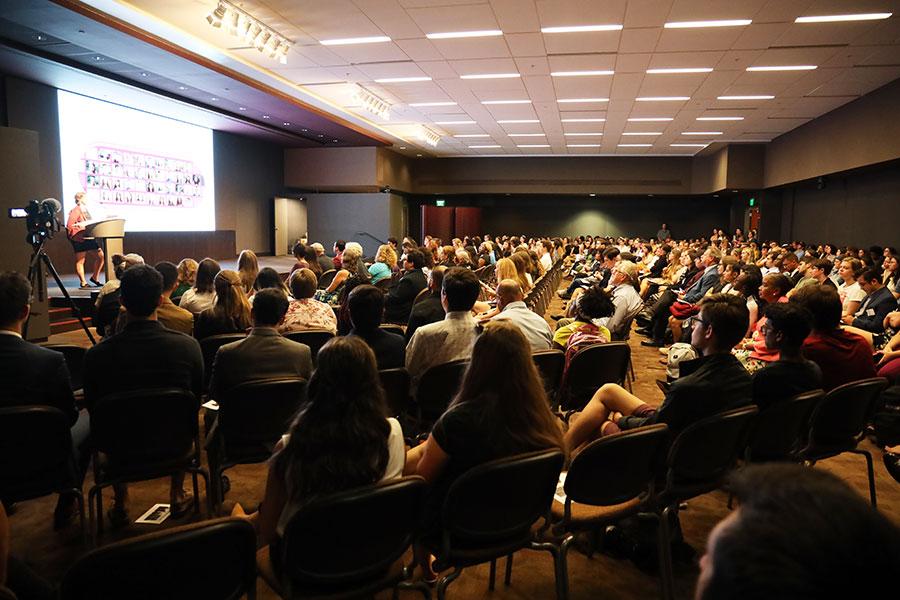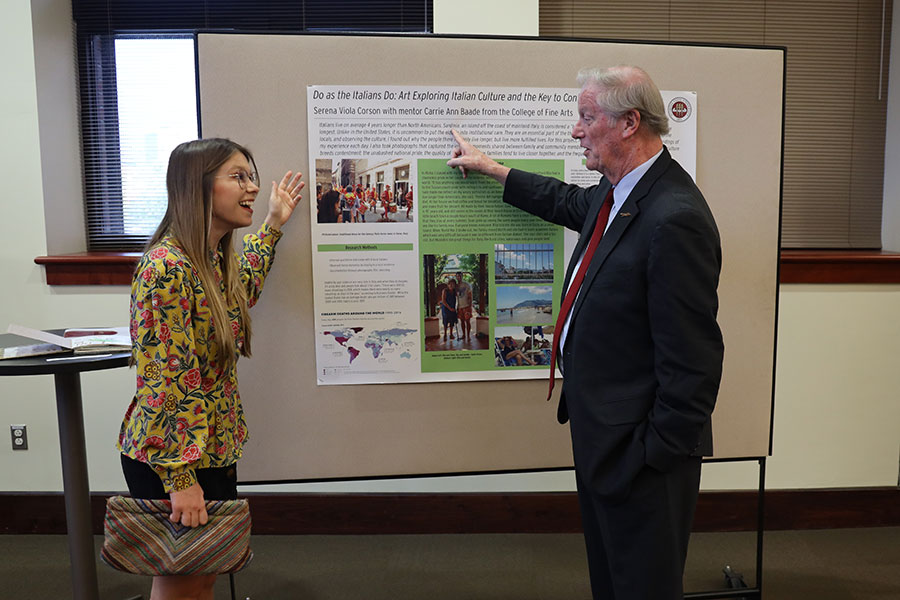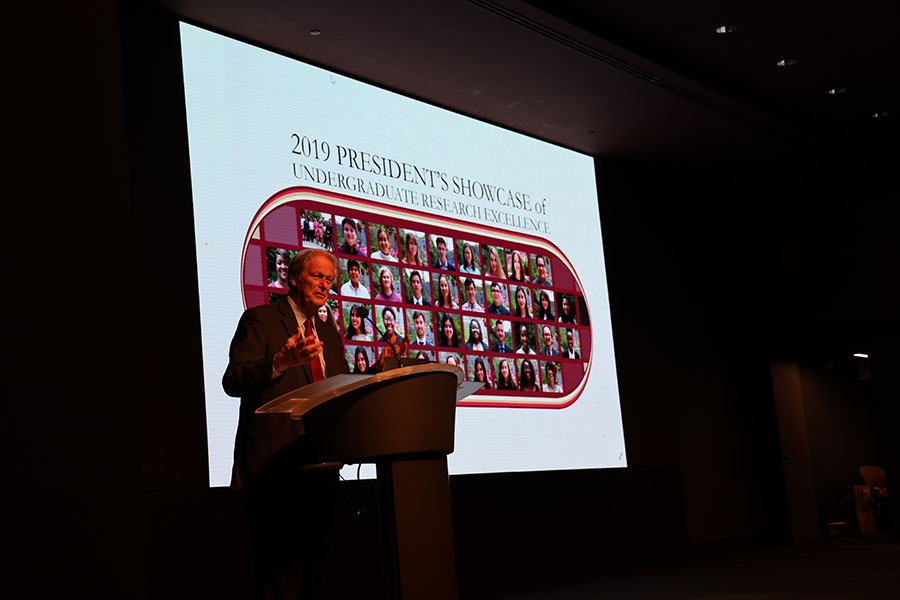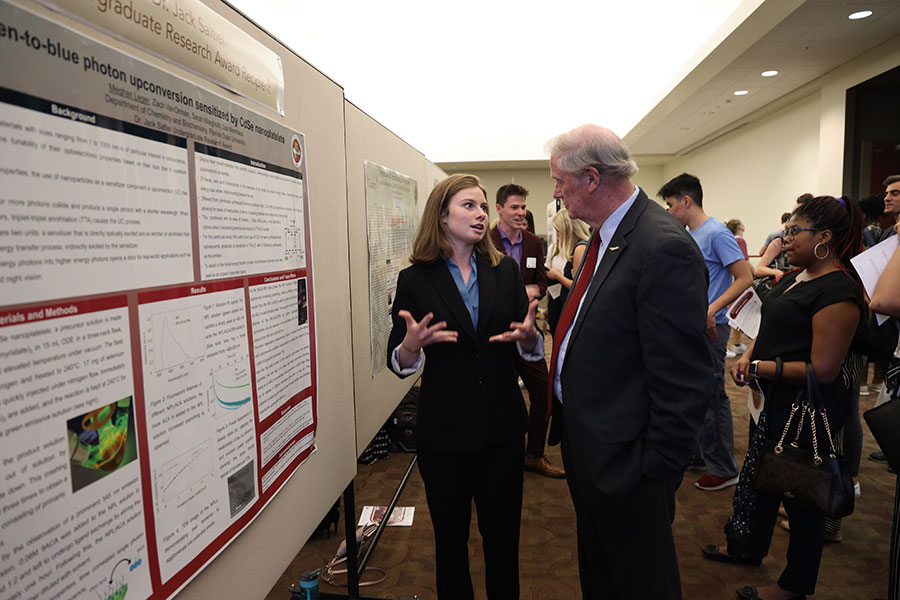From determining the value of virtual reality technology in autism intervention to examining language policy in Ghanaian schools to studying excitation models of interval-counting neurons, undergraduate students at Florida State University presented a wide variety of impressive research at the 2019 President’s Showcase of Undergraduate Research Excellence.
The annual showcase, which took place Tuesday, Oct. 1, at the Augustus B. Turnbull III Florida State Conference Center, is a culmination of the summer research and creative work undertaken by IDEA Grant, Tech Fellow and iGEM award recipients under the mentorship of some of FSU’s most distinguished faculty.
“Our students are doing groundbreaking work in partnership with our talented faculty that pushes their disciplines further,” said President John Thrasher. “The undergraduate research experience helps students become more critical and capable thinkers who are able to identify problems and find ways to solve them.”
IDEA grants fund research, creative projects and the development or evaluation of new or existing ideas. The Tech Fellows program seeks to expose students to the everyday work of product development, entrepreneurship and ecosystem building. FSU’s International Genetically Engineered Machines (FSU iGEM) program provides students from all majors an undergraduate research experience focused on innovation and team-based science and engineering.
“This isn’t undergraduate research; this is undergraduate students doing research,” said Karen Laughlin, dean of Undergraduate Studies at FSU.
Elias Larralde, a junior history major, received an IDEA grant to fund his project, “Melodies of Mirages: Exoticism, Folklore, and ‘performing’ Santeria.” His research examined how the commodification and folklorization of the religious music of Santeria affected practitioners and Afro-Cuban musicians starting in the 1950s and up until the present day.
“I found that both revolutionary government propaganda and American entertainment were affecting how both practitioners and Afro-Cuban musicians saw themselves and how they could portray their religion,” Larralde said.
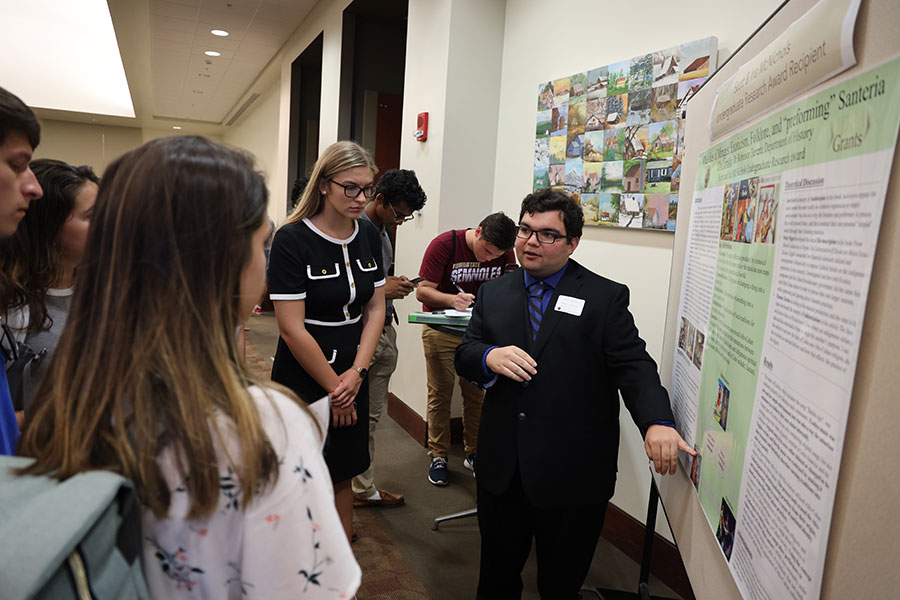
Using this research as a springboard for his honors thesis next semester, the experience of participating in undergraduate research helped Larralde find his place in academia.
“It prompted me to think more about my place in academia and that my thoughts are valid,” said Larralde. “When you get undergraduates to help with research and do their own, they start doing the groundwork to see what they really like, and that makes it easier for them to find their niche in the academic community.”
Senior history major Keara Sebold explored how institutions of higher education influenced youth culture through civil and political activism, racial prejudice and the development of female sexuality through her project, “Female Higher Education in the 1920’s: A Comparative Study of the Florida State College for Women and Radcliffe College.”
“I found that while the girls at the Florida State College for Women were doing similar things academically to the women at Radcliffe, they were very much restricted on how they interacted with people of the other gender, and they had almost no interaction with people of different races,” Sebold said. “It was interesting to see how the two schools grew parallel to each other, but so differently.”
Sebold said the opportunity to travel to Boston and conduct archival research through her IDEA Grant was one of the most beneficial components to her FSU experience.
“I met a lot of faculty and got an internship through this,” Sebold said. “My entire experience at FSU has been shaped by the research I’ve been doing. It’s important for everyone to get involved and make the most out of FSU.”
Jessica Dixon, a senior studying neuroscience in the College of Arts and Sciences, researched the unknown changes in brain function that underlie spatial reorientation impairment in mice with Alzheimer’s Disease.
“I looked at the connection between navigation and activity in the CA1 region in the hippocampus, because it’s associated with the ability to navigate,” Dixon said. “I found that there’s a marginally significant correlation between hyperactivity in this region and Alzheimer’s Disease, which is not what I had originally expected.”
The experience gave Dixon ideas for future research and how to expand the scope of this particular project. It also solidified her decision to pursue research as a career.
“Getting involved in undergraduate research really helps you decide what you want to do,” Dixon said. “I want to work with translational neuroscience, and this allows me to work in the field before I even become a professional. It basically confirmed what I want to do.”
Applications for next year’s grants are due Feb. 1, 2020, and are available at cre.fsu.edu.





